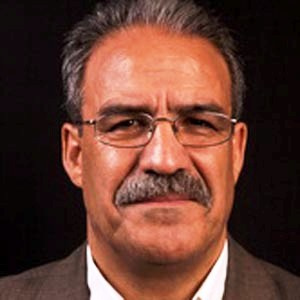Mahathir in Turkish

Unlike many other countries in the Middle East where elections implicate tension and controversy, the polls in Turkey –held in compliance with international norms and hosting international observers- were held in relative peace despite all the vigor, transparency and explicit remarks of the competitors; a sign of the political maturity of the Turkish citizens, indeed.
The role of the AKP’s sage foreign minister, Ahmet Davutoglu, in bringing stability to Turkey cannot be exaggerated. It was his doctrine that taught and motivated the leaders of the country to quest for an elevated role in the international community after decades of low-efficiency diplomacy. Turkey’s current diplomatic strategy is based on reducing to zero the tensions within the former territories of the Ottoman Empire in the Middle East (e.g. in Syria, Jordan, Egypt). In this way, Ankara has also made the most of Iran’s clumsy attitude in regional affairs, expanding its clout in the Arab Middle East, North Africa and the Persian Gulf.
Throughout these years, Recep Tayyip Erdogan has also mastered how to string his chords to the tune of his constituents. With his team, the Turkish Prime Minister has released the nationalistic potential of the Turks. These sentiments stand at their zenith in today’s Turkey. Despite a significant Kurdish minority, through the promotion of the Turkish language and literature inside the country and following a robust public diplomacy in its periphery, Ankara has projected the image of a determinedly emerging power not only for the Middle East, but also for the international community. This strategic achievement has been enough for Erdogan to gain popularity among nationalists and Islamists -- both groups aspiring to an internationally powerful Turkey.
However, few doubt that economic prosperity -- a direct product of political stability -- has been the fulcrum of the AKP’s success for the third successive term in the parliamentary elections and in winning the party support from the country’s burgeoning class of entrepreneurs. In one case, revenues gained from tourism –with the number of tourists more than doubled since AKP’s rise to power- have brought welfare after decades of economic hardships for Turkish citizens. Under the AKP, even the traditionally –and structurally- underdeveloped Kurdish regions of southeastern Turkey have received a generous share of the government’s development plans, including investments and major infrastructure projects. Turkey’s quest to become the regional energy hub has proved successful with the functioning Baku-Ceyhan-Tbilisi Pipeline and its parallel sister Baku-Tbilisi-Erzurum. The Blue Stream Pipeline that traverses through Russia into Turkey and Port Samsun, is another energy route that solidifies Turkey’s position.
In many aspects, the Turks now possess sound infrastructures and a robust civil society. With its enhanced situation, Ankara can refuel its drive for EU membership as it can claim its economic and social dynamics is outdoing the Eastern European countries bidding to join the EU club. For many observers, Turgut Ozal is the symbol of Turkey’s economic reconstruction, but it seems that Recep Tayyip Erdogan is more deserving of this accolade; perhaps he is a Turkish version of the Malaysian Prime Minister Mahathir Mohammad.
Bahram Amir Ahmadian is professor of Tehran University and a Turkey affairs analyst.

